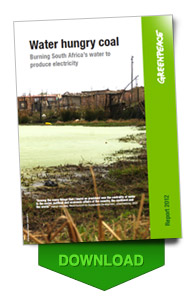Coal power dries up SA’s water resources
Coal-fired electricity is a major threat to South Africa’s already stressed water resources – and Eskom’s new mega coal plants are set to make matters even worse, further compromising water access for the poor. Currently almost a million South African households still have no access to water.
Fast Facts:
- Eskom’s coal power is crippling SA’s water resources. Coal is replaceable, but there are no alternatives to water.
Tweet
- Eskom’s ‘water-efficient’ coal plant, Kusile, will use 2,9 Million litres of water an hour.
Tweet
- Eskom’s coal power severely depletes our water, and drives climate change — further stressing SA water reserves. Tweet
- For more shocking coal and water-related facts, click here.
A new report by Greenpeace Africa makes clear connections between coal power and water scarcity, outlining how the South African government and Eskom are making disastrous choices in favour of coal expansion. These energy choices come at the expense of scarce water resources, people’s heath, and affordable electricity.
“Eskom uses just over a staggering 10 000 litres of water a second, the same amount a single person would use in one year. The utility’s reckless investment in new coal-fired power stations clearly puts South Africa’s scarce water supplies at risk,” said Melita Steele, climate and energy campaigner for Greenpeace Africa.
“Due to growing water shortages, competition for water is likely to increase between the agricultural, electricity, and residential sectors. This could lead to conflicts over water. According to research conducted by the Water Research Commission, water scarcity is already leading to service delivery protests in the country. With as much as 98% of South Africa’s water already allocated, the question is: where will the water for Eskom’s new coal-fired power stations come from?”
Of the 22 mines that supply Eskom with coal, half were operating without a valid water license in 2010. This lack of transparency in the water sector is an additional threat to our water, on top of Eskom’s water-depleting coal addiction. Most of this information about water licenses is kept from the public domain, a clear threat to accountability and the protection of our country’s water.
“South Africans have a right to know how water is being allocated, managed, and polluted. The current allocation of water to the coal mining industry and Eskom for coal-fired electricity is not transparent, accountable, or sustainable. Water is not just an environmental issue, it is a critical constraint to future development, and it is a fundamental issue at the heart of justice, economics, and human rights” added Steele.
South Africa is facing huge political decisions around the allocation of water. If investments were shifted to essentially ‘water-free’ renewable energy technologies and energy efficiency, this would drastically reduce the water required for electricity generation, deliver sustainable electricity to all South Africans, create jobs, and help avoid water insecurity and conflict.
“It is still possible to pull back from the brink of crisis, but only if the right choices are made today.It is time to end the era of coal in South Africa through a just transition towards renewable energy. Our ability to deal with a changing climate and a future water crisis depends on it. The South African government and Eskom must realise that there are very effective substitutes for coal, but there are no alternatives to water”, concluded Steele.
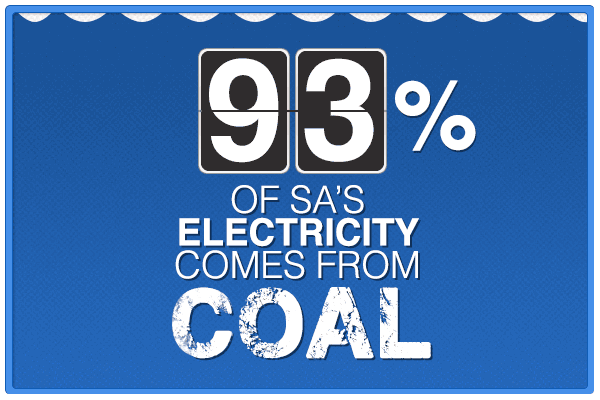
Related Posts
-
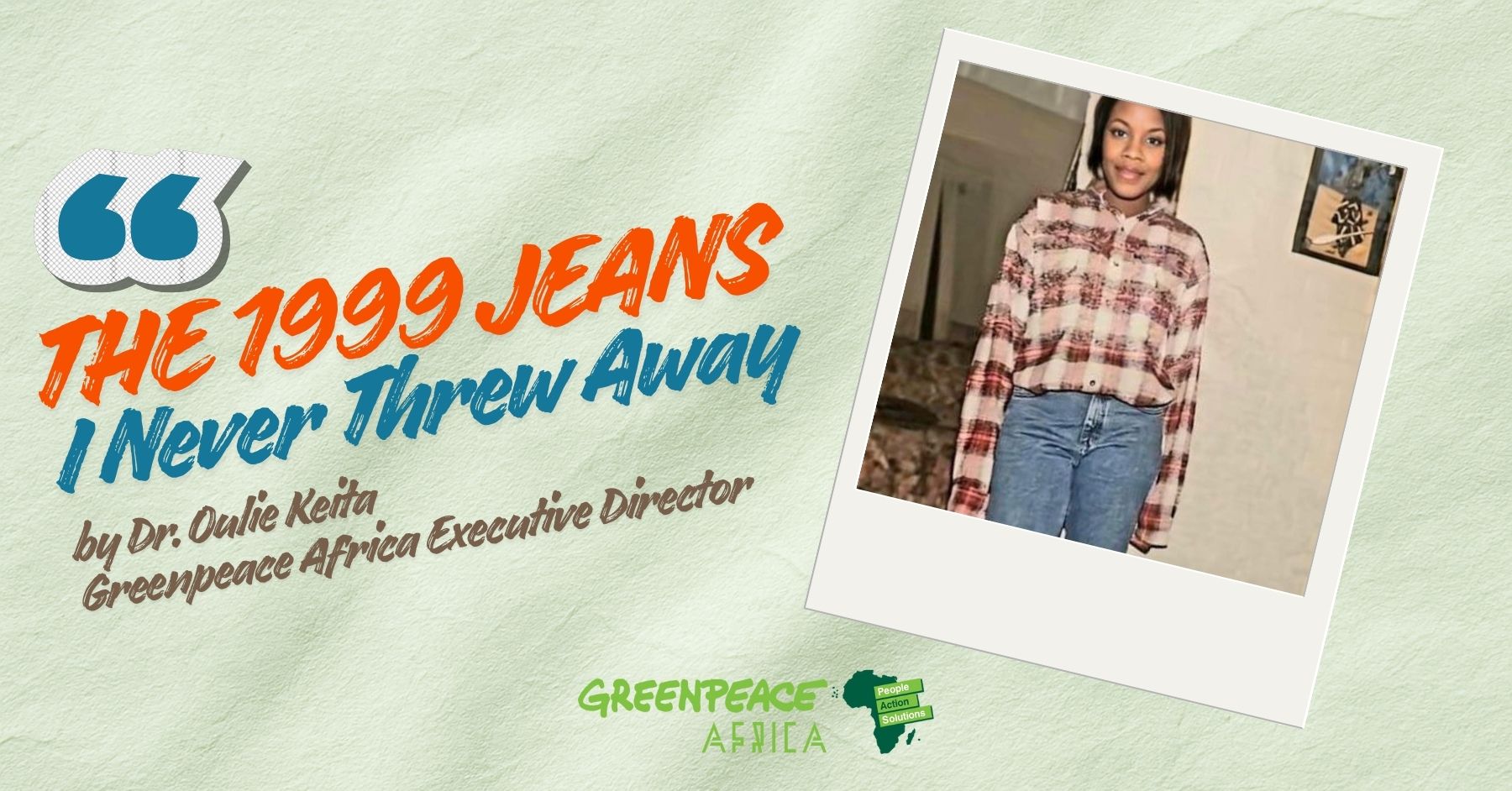
The 1999 jeans I never threw away
Remembering what fashion forgot: why keeping what we have might just save the planet.
-
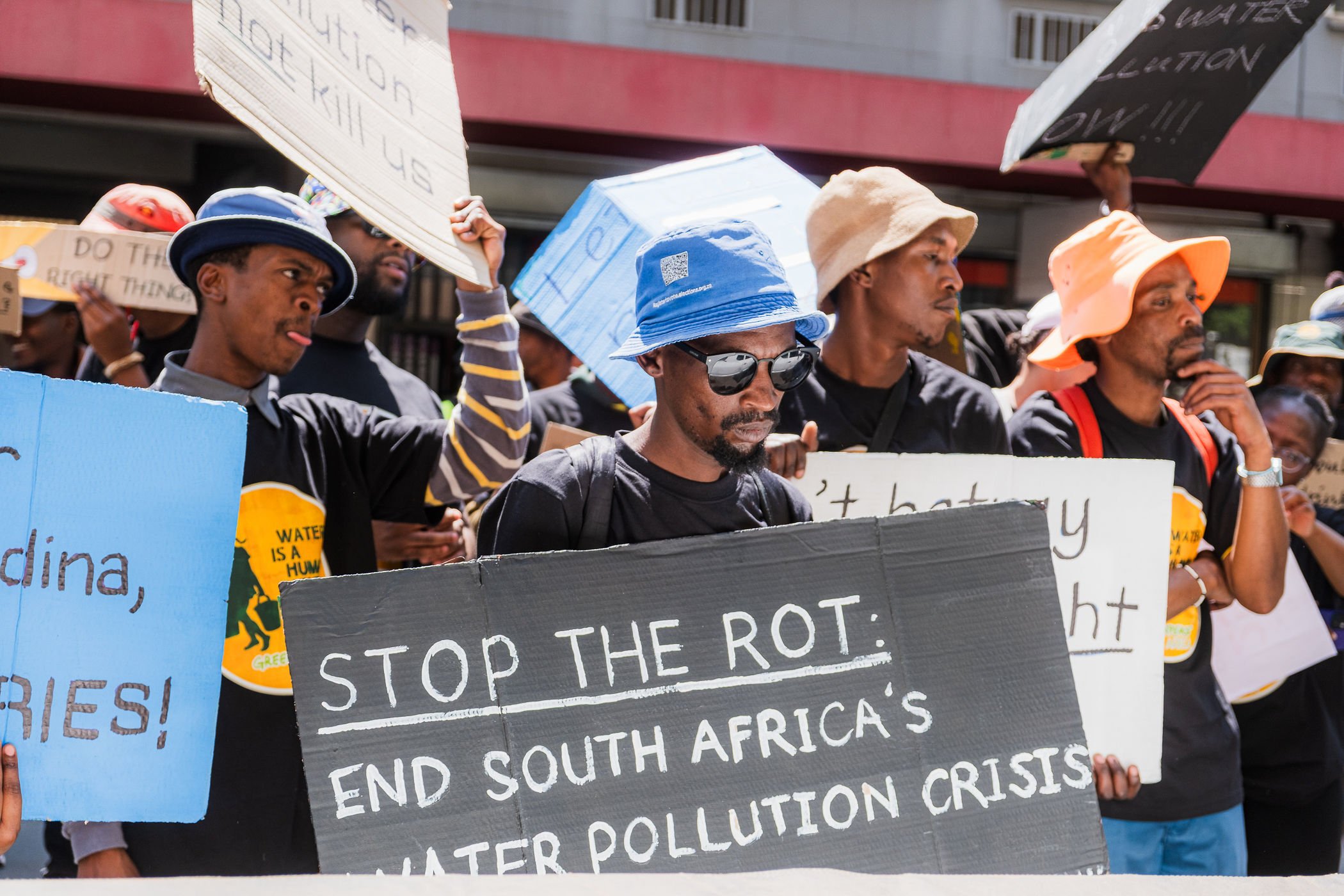
Over 25,000 concerned citizens demand safe water: Greenpeace Africa hands petition to Minister Pemmy Majodina
Pretoria, South Africa – Millions of South Africans wake up every day unsure if the water from their taps is safe to drink. Yesterday, Greenpeace Africa delivered a petition signed by over 25,000 concerned people, alongside a Memorandum of Grievances, to the Department of Water and Sanitation in Pretoria, demanding urgent action to end the…
-
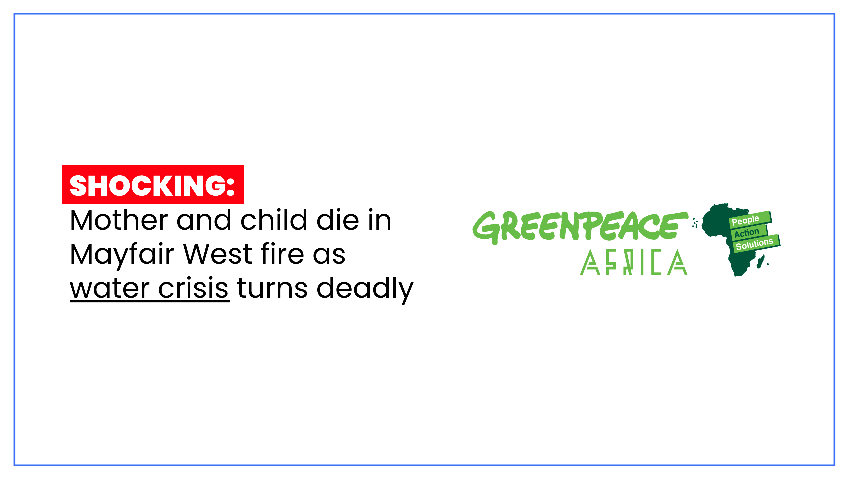
SHOCKING: Mother and child die in Mayfair West fire as water crisis turns deadly
A devastating house fire in Mayfair West, Johannesburg, has claimed the lives of a mother and her child, and exposed the fatal consequences of South Africa’s worsening water crisis.

